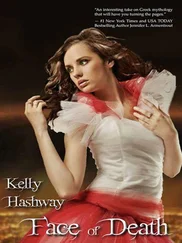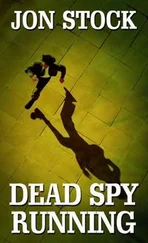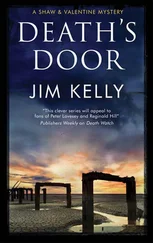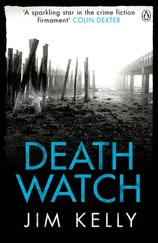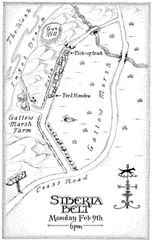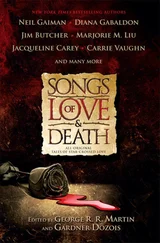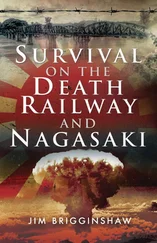Jim Kelly - Death Toll
Здесь есть возможность читать онлайн «Jim Kelly - Death Toll» весь текст электронной книги совершенно бесплатно (целиком полную версию без сокращений). В некоторых случаях можно слушать аудио, скачать через торрент в формате fb2 и присутствует краткое содержание. Жанр: Полицейский детектив, на английском языке. Описание произведения, (предисловие) а так же отзывы посетителей доступны на портале библиотеки ЛибКат.
- Название:Death Toll
- Автор:
- Жанр:
- Год:неизвестен
- ISBN:нет данных
- Рейтинг книги:5 / 5. Голосов: 1
-
Избранное:Добавить в избранное
- Отзывы:
-
Ваша оценка:
- 100
- 1
- 2
- 3
- 4
- 5
Death Toll: краткое содержание, описание и аннотация
Предлагаем к чтению аннотацию, описание, краткое содержание или предисловие (зависит от того, что написал сам автор книги «Death Toll»). Если вы не нашли необходимую информацию о книге — напишите в комментариях, мы постараемся отыскать её.
Death Toll — читать онлайн бесплатно полную книгу (весь текст) целиком
Ниже представлен текст книги, разбитый по страницам. Система сохранения места последней прочитанной страницы, позволяет с удобством читать онлайн бесплатно книгу «Death Toll», без необходимости каждый раз заново искать на чём Вы остановились. Поставьте закладку, и сможете в любой момент перейти на страницу, на которой закончили чтение.
Интервал:
Закладка:
At the cemetery gates he found DC Jacky Lau by her parked Megane. Lau’s car was adapted for rallying, with a complete set of spoilers, multiple spotlights and a trio of go-faster stripes. She was leaning on the car, staring into her mobile phone. Outside the office she always wore reflective sunglasses. She was ethnic Chinese, and possessed a kind of unpredictable energy which matched her driving. She was respected in the squad, but not especially liked. Her ambition, to make DI within five years, was naked. When she wasn’t pursuing that ambition she was wrapped up in her hobby: cars, and the men who drove them.
‘Sir,’ she pushed herself off the car’s bonnet with her thighs. ‘Paul said to meet you here. Cemetery’s still sealed off. Forensics are down by the open graves. I’m leading house-to-house, starting at nine — St James’s are sending a dozen uniforms down for the day. What are we looking for here?’
It was a good question. Shaw took in a lungful of fog. ‘For now, stick to the houses overlooking the cemetery. Anything over the years, I suppose …’ He suddenly felt the weight of the task before them — solving a crime at a distance of nearly three decades. ‘See if any group is known to hang around the place regularly after dark — druggies, lovers etc. We don’t know when chummy got dumped, but it’s probably way back. Throw in Nora Tilden’s name — if anyone remembers the funeral, get a full account. Names, anything unusual …you know the routine.’
He wondered what was going on behind the reflective glasses. ‘We should have more from Tom and Justina to go on later.’
He left her making a note and walked on through the open gates of Flensing Meadow Cemetery, the visibility down to twenty yards so that his world was reduced to a circular arena of tombstones and the path cutting through them, the only movement coming from the crows that flitted in and out of view over his head as they swapped branches in the trees, prompting showers of damp snowflakes. He wondered whether the silence of graveyards was an illusion. He strained his ears to catch the swish of traffic on the new bridge and — just once — the distant crackle of a police radio.
He’d left Valentine back at St James’s organizing the bugging and surveillance of Jimmy Voyce. Max Warren had given them ten days and it would take twenty-four hours to put a unit fully in place. The priority was to get listening devices into Voyce’s hotel room and, if they could, into the car he’d hired. Twine had been scouring the airline passenger lists and had just discovered that Voyce was booked on a flight to Auckland via Hong Kong leaving in six days’ time.
That was a break: if Voyce was going to try to blackmail Robert Mosse his timetable was actually narrower than theirs. Today they needed to get a rough idea of Voyce’s movements so that they could time the bugging operation — and obtain a court order allowing them to carry it out. Once Valentine had got the ball rolling he was due to meet Shaw at eleven to interview Lizzie Tilden, now Lizzie Murray — Nora Tilden’s daughter and, in her own turn, owner and landlady of the Flask.
The cemetery chapel came into view. When Shaw pushed open the Gothic-arched door he was surprised by the efficient hum of activity, and the mechanical gasps of a coffee maker. Twine had put in place a standard incident room in record time: desks, phone lines, internet link and a screened area for interviews. Outside, the St James’s mobile canteen was still on site; beside it was a 4x4 Ford with CAMBRIDGE ARCHAEOLOGICAL TRUST tastefully signwritten in gold on the passenger door. Despite the early hour Twine had found two civilian switchboard operators to answer the phones. A perspex display board in front of the altar was covered in photographs taken at the graveside and one that Shaw hadn’t expected — an enlarged black-and-white shot of a woman in her mid-fifties, greying hair pulled back off her face. It was a hard face, and no doubt she’d had a hard life to go with it, but Shaw doubted it had been that hard. A Victorian face, shipwrecked in the twenty-first century: a round head, puffy, with no discernible bone structure; a cannonball, the small black eyes lost in the flesh.
Twine brought him a coffee.
‘Paul,’ said Shaw, looking round. ‘Well done. This her?’
‘Nora Elizabeth Tilden. Lynn News archive, 1981 — just a year before she died. Taken at a charity presentation at the Flask — raised three hundred pounds for Barnardo’s. Looks like a tough bit of work,’ he added.
Shaw took a closer look, thinking for the first time what a mismatched couple they seemed: Nora Tilden and her fun-loving errant husband, Alby.
DC Fiona Campbell unfolded herself from the nearest desk. She stood six feet two but tried to look shorter, shoulders slightly rounded, always in sensible flat shoes. Campbell was a copper from a family of coppers — her father a DCI at Norwich. She’d come out of school with the kind of A-levels that could have got her into university — any university. But this was her life. And she wasn’t just smart. She’d earned her street stripes the hard way. The scar on her throat — an eight-inch knife wound from ear to collarbone — was a livid blue. She’d received a Police Bravery Award for trying to disarm a man with a knife who had been determined to take his own life. She’d put the medal in a box, but she’d wear the scar for ever.
‘Sir. You wanted to talk to the gravediggers?’ she asked, shuffling a handful of papers. ‘All gravedigging was done by the council’s Direct Labour Unit until five years ago. Now it’s contracted out to a private outfit, but it’s the same people doing the digging. There’s a hut …’
Shaw let her lead the way. Shrugging on a full-length overcoat, she pushed open the door of the old chapel and walked out into the mist. She hunched her shoulders a bit more once they were out in the cold. The damp was extraordinary this close to the river. Droplets covered Campbell’s coat like sequins. They walked together away from the chapel on a slowly curving path edged with savagely pruned rose bushes. In the folded silence of the mist they could hear the forensic team still working down by Nora Tilden’s grave, the sharp metallic tap of a tool striking a pebble preternaturally clear.
‘Anything from Tom?’ asked Shaw. This was the third major inquiry Shaw had led with this team and they’d learned the value of sharing information within a tight-knit circle. He was confident DC Campbell would be up to speed.
‘No — nothing. Paul says everything the Cambridge team has found so far has been inside the coffins, with documentation to match.’
Soon a stand of pine trees came into view, shielding a set of ramshackle outbuildings lit by a security light that struggled to penetrate the fog. A Portakabin door opened, letting a cat slip out, its black fur bristling. They caught a thin blast of a radio tuned to Classic FM. A man appeared on the threshold in a Day-Glo yellow workman’s jacket, tipping out a coffee mug.
‘Hey up,’ he said over his shoulder. He stood aside to let Shaw and Campbell into the single room. It had no windows, only air vents that did little to disperse the fug of heat and burning paraffin from the enclosed space. A single neon tube provided scant illumination.
Shaw closed the door and leant against it while Campbell took the one vacant seat. The room was chaotic. Against one wall stood a row of metal lockers. There was a table around which three men sat, a bench holding a kettle and mugs, and a gas ring attached to a fuel bottle. Waves of heat rolled out of an industrial paraffin heater. The floor was crowded with tools, coats, stuffed black bin-liners, here and there split to reveal the rubbish inside them. The space the men occupied was reduced to where they sat. The metal walls were damp with condensation, their only adornment a calendar, curled so much that Shaw could see only the girl’s face, a fake smile failing to mask her boredom.
Читать дальшеИнтервал:
Закладка:
Похожие книги на «Death Toll»
Представляем Вашему вниманию похожие книги на «Death Toll» списком для выбора. Мы отобрали схожую по названию и смыслу литературу в надежде предоставить читателям больше вариантов отыскать новые, интересные, ещё непрочитанные произведения.
Обсуждение, отзывы о книге «Death Toll» и просто собственные мнения читателей. Оставьте ваши комментарии, напишите, что Вы думаете о произведении, его смысле или главных героях. Укажите что конкретно понравилось, а что нет, и почему Вы так считаете.

